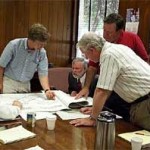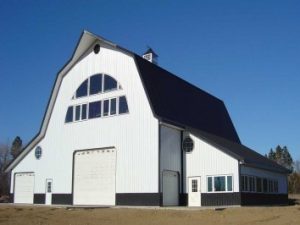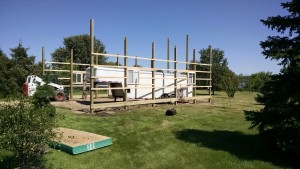Does a Building Official have the capacity to deny the work of a Professional Engineer?
Excerpted from SBC Magazine April 2, 2019
The short answer is no, not according to the law. Why? Simply put, building officials are not granted legal authority over professional engineers. Rather, they only have authority with respect to enforcing specific provisions of the building code adopted into law in their jurisdiction. An analogy would be that a police officer does not have legal authority over a properly licensed attorney or district attorney.
 The board of professional engineers is the only regulatory authority having jurisdiction over engineering. So what does this mean in practical terms? A properly licensed professional engineer is allowed to practice engineering, without discrimination, restraint or limitation. By engineering law, this needs to be in their area of expertise. The same process and concepts are true for licensed professional architects.
The board of professional engineers is the only regulatory authority having jurisdiction over engineering. So what does this mean in practical terms? A properly licensed professional engineer is allowed to practice engineering, without discrimination, restraint or limitation. By engineering law, this needs to be in their area of expertise. The same process and concepts are true for licensed professional architects.
If any building official believes an engineer is violating engineering law, they need to follow the proper state law complaint process through the licensing board that governs engineering.
Consequently, the building officials the Structural Building Components Association (SBCA) has discussed approval of professional engineering work with, provide the following approval counsel:
- They first verify that the professional engineer is licensed to practice in a given jurisdiction by going to the state board’s website to see if the engineer in question has a valid and current license. An example validation site can be found here.
- If the professional engineer is licensed in the state and has signed and sealed their engineering work, they are defined by law to be an approved source, which is a term specifically defined in the building code as “an independent person, firm or corporation, approved by the building official, who is competent and experienced in the application of engineering principles to materials, methods or systems analyses.”
- They approve the professional engineering work by filing for the record a signed and sealed engineering analysis, research report, design drawing or construction document.
The only caveat to this is if, during the review of the documents provided by the engineer, a code compliance error is made. That error then needs to be brought to the attention of the engineer, along with the code section violated, so that the engineer can correct the error.
Pole Barn Guru’s summary – if you are an unregistered individual (not a RDP – Registered Design Professional – architect or engineer) and submit a set of plans to a Building Official, they can do virtually anything they want to your plans. Involving a RDP in your process will only make your life easier, insures structural adequacy and (in many cases) saves both time and money.








